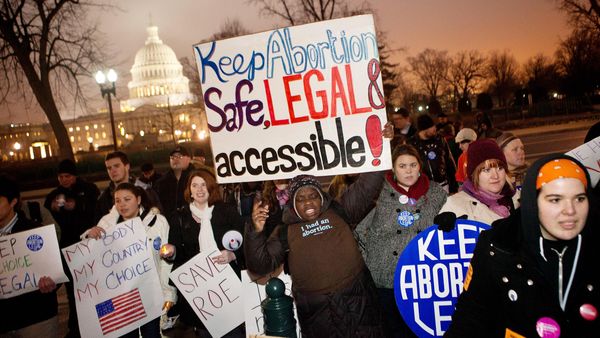In light of recent news coverage on the Trump administration's decision to separate children from families who illegally cross the border, controversy over the cruelty of the practices employed by ICE has exploded in the media and online. Political pundits, citizens, and first ladies alike have reacted to haunting images of children separated from families as a result of Attorney General Jeff Sessions' implementation of a "Zero-Tolerance" policy against those attempting to enter the U.S. illegally. For reasons that I can only attribute to a massive lack of empathy among some 33% of the U.S. population, this policy is deemed to be an acceptable, and even necessary, step to deter illegal migrants from entering the U.S., despite posing a human rights violation by breaking up families who are seeking asylum from dangerous situations in their home countries. Photos taken by a Getty Images photographer have made headlines in showcasing the emotional turmoil of a young Honduran girl who was separated from her mother. Most of these children have been taken to special shelters operated by ICE, and have reportedly been placed in cages.
The separation of children from their families at the border was ended with an executive order on June 20, but there are still problems that remain. ICE and the Department of Health and Human Services did not prepare for the logistical challenge of keeping track of the children and their respective guardians, meaning that it is possible that those separated from each other may never reunite.
However, this is hardly the first instance of cruel immigration policy in the United States of America's history.
In fact, the Obama administration had a policy of imprisoning migrants without a condition for release for the purpose of deterring others - a violation of the 5th Amendment's federal mandate for due process, and a human rights violation for those who were seeking asylum. The policy was adopted in 2015 after the Department of Homeland Security saw an increase in mothers with children attempting to cross the Mexican border illegally. In 2015, the American Civil Liberties Union sued a D.C. federal court in RIHL v. Johnson, which resulted in a judicial order to stop the use of migrant imprisonment for deterrence purposes. In essence, the Obama administration provided a precursor for the unjust imprisonment of Central American immigrants, which included the imprisonment of children, without a trial. While this was not nearly as inhumane as the current separation of children from their caretakers, an indefinite term of imprisonment on the mere basis that you are a foreigner is still a horrid practice.
In comparison to the current state of immigration policy, the story of my parents' immigration to the United States was a far less traumatic affair, though it was still controversial. My father was only 3 when his parents took him to the United States, which was legal through the implementation of the Cuban Adjustment Act of 1966. My mother came to America when she was 11, during the Mariel Boatlift in 1980. Both my father and mother were privileged in that they did not enter this country illegally, and they had a legislatively established path to becoming permanent residents, but that did not translate to a path to citizenship. Both families had to invest in becoming naturalized, and this poses a significant financial investment over time. My grandmother on my father's side had to invest in citizenship for her and my father, all while being a single mother. My mom was in middle school when she left Cuba, so when she arrived here, she was confronted with the challenge of being schooled while learning a new language in a strange land. Most importantly, my parents were fully dependent on their parents because they were children. They played no role in their parents' decision to come to a foreign country, and it is absurd to pose that children, who have no agency over their parents' decisions, should be ripped away from the people they need the most. Had my parents been taken away from their families, they likely would have been subjected to long-lasting, scientifically verified emotional trauma, as evidenced by studies of children in Japanese internment camps, on top of the psychological duress placed on immigrants to assimilate and become used to a different society.
And yet, my parents' stories were nowhere near as harrowing as the journey that Central American asylum-seekers undertake to get to the U.S. They do not have the anti-Communist immigration policy of the '60s on their side, as Cuban emigrates did, and few legal options. The journey from Honduras or Guatemala or El Salvador or elsewhere is riddled with gang violence and countless other dangers - all of which are even more perilous if you are traveling as a mother with children. Central and South Americans face more than most modern immigrants can relate to - and recently, they were subjected to the inhumane policy of separating children from their families. There is currently little-established protocol in place to reunite parents and children.
The current state of immigration policy in the United States is morally repugnant, and all Americans, regardless of status and origin, should have more empathy for immigrants seeking asylum - especially Central and South Americans.
- How The Trump Administration's 'Zero Tolerance' Immigration Policy ... ›
- Tougher US border enforcement policy to separate more families ›
- The Facts About Donald Trump's Family Separation Policy | Time ›
- Zero-tolerance immigration policy leads to surge in family ... ›
- How the Trump Administration Got Comfortable Separating ... ›
- Trump's 'zero tolerance' immigration policy sparks outrage in Central ›
- you need to know about the Trump administration's zero-tolerance ... ›



















